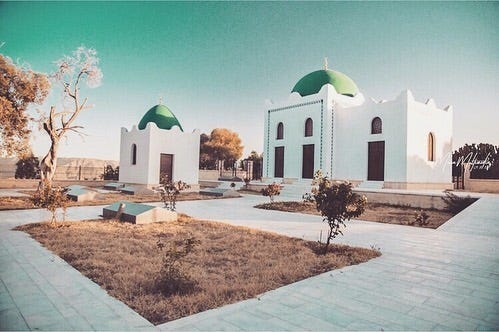The Al Nejashi Mosque in Negash, Tigray, Ethiopia, is a historic emblem in Islamic heritage. Established after 615 CE, it is one of Africa's oldest mosques, deeply intertwined with Islam's early history. Named after King Negashi of the Aksumite Empire, who provided asylum to Muslim refugees fleeing Mecca, the mosque symbolizes the early interactions between Muslims and Christians, showcasing a historical moment of tolerance and compassion between different faiths.
A comparison between the Al Nejashi and Quba Mosques reveals complexities in establishing dates of ancient religious structures. The Al Nejashi Mosque's establishment, predating the Quba Mosque, brings into question the traditional timeline of Islamic history. This mosque challenges established narratives, prompting a re-examination of historical sources and methodologies, offering new insights into the spread of Islam in Africa and Ethiopia's role in the early Islamic world.
The relationship between religious belief and historical analysis is particularly pertinent in Islamic history. New historical findings related to the Al Nejashi Mosque are integrated into existing religious narratives, enriching our understanding of the faith's history and its early interactions with other cultures and religions.
Exploring examples of past historical revisions in Islamic studies, the impact of archaeological and historical research on the understanding of Islamic history becomes evident. Discoveries and interpretations can reshape our understanding of key events and figures in Islamic history.
The conclusion emphasizes the importance of continual learning and openness to new information in historical studies. It highlights the role of critical thinking in the study of religious history and its contribution to a more nuanced and comprehensive understanding of the past. Here’s the full article.




